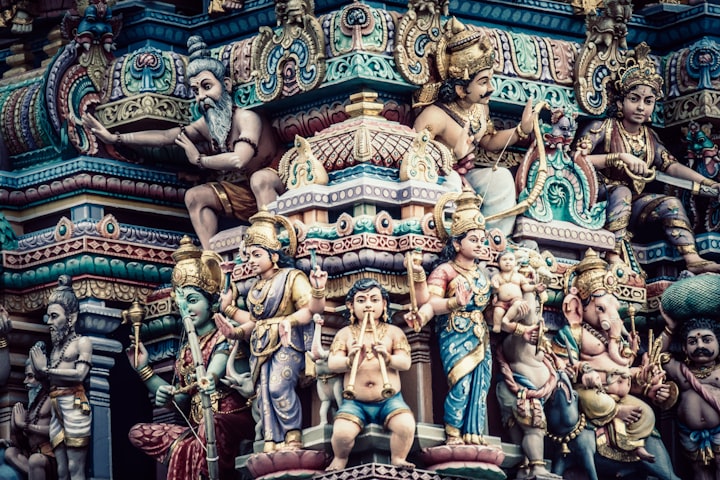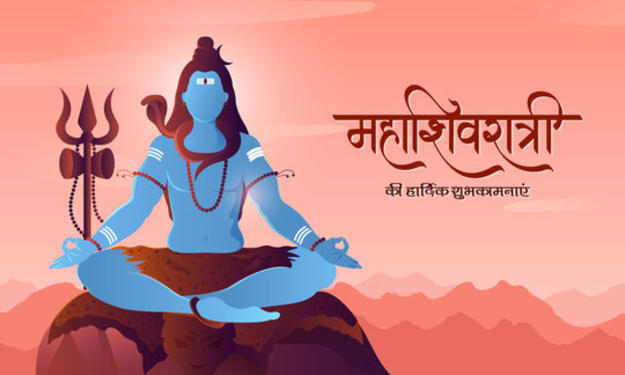Exploring the Rich Tapestry of Hinduism: Culture, Tradition, and Faith
Culture, tradition and Faith

Introduction:
Hinduism, one of the oldest religions in the world, is a complex tapestry woven with culture, tradition, music, festivals, and deep-rooted faith. Originating in the Indian subcontinent, Hinduism encompasses a vast array of beliefs, practices, and philosophies that have evolved over thousands of years. In this comprehensive exploration, we delve into the multifaceted aspects of Hinduism, from its diverse pantheon of gods to its vibrant festivals and the enduring values that shape its followers' lives.
Culture and Tradition:
Central to Hinduism is its rich cultural heritage, which reflects the diversity and complexity of Indian society. From intricate rituals and ceremonies to elaborate art forms and literature, Hindu culture is steeped in tradition. The concept of dharma, or duty, plays a crucial role in shaping social norms and behavior, emphasizing virtues such as honesty, compassion, and respect for elders.
Traditional practices like yoga and meditation have their roots in Hinduism, offering pathways to spiritual growth and self-realization. The caste system, though controversial and often misunderstood, has been an integral part of Hindu society, organizing communities based on occupation and social status.
Music:
Music holds a special place in Hindu culture, serving as a conduit for spiritual expression and devotion. Classical music forms such as Hindustani and Carnatic music have flourished for centuries, with intricate melodies and rhythms designed to evoke a sense of transcendence. Bhajans (devotional songs) and kirtans (musical chants) are performed during religious ceremonies and festivals, fostering a deep connection between the devotee and the divine.
Festivals:
Hinduism is synonymous with a myriad of festivals, each celebrating different aspects of life, nature, and spirituality. Diwali, the festival of lights, symbolizes the triumph of good over evil and is marked by the lighting of lamps, fireworks, and the exchange of sweets. Holi, known as the festival of colors, heralds the arrival of spring with joyous revelry, where people douse each other in colored powders and water.
Other significant festivals include Navaratri, celebrating the triumph of Goddess Durga over the buffalo demon Mahishasura, and Janmashtami, commemorating the birth of Lord Krishna. These festivals serve as occasions for community bonding, feasting, and reflection, reinforcing the sense of unity and shared cultural identity among Hindus.
Faith and Belief:
At the heart of Hinduism lies a deep and abiding faith in the divine, manifested in various forms and deities. While some Hindus worship a single supreme being, others revere multiple gods and goddesses, each representing different aspects of existence. The concept of Brahman, the ultimate reality, encompasses both the transcendent and immanent aspects of the divine, pervading all of creation.
The pantheon of Hindu gods and goddesses is vast and diverse, ranging from the powerful trinity of Brahma, Vishnu, and Shiva to regional deities like Ganesha, the remover of obstacles, and Lakshmi, the goddess of wealth and prosperity. Each deity is revered with rituals, prayers, and offerings, reflecting the multifaceted nature of Hindu spirituality The concept of 33 types of God. Hinduism. he concept of 33 types of gods does not necessarily mean 33 crore (330 million) gods and goddesses. Instead, it refers to a symbolic number representing the diverse manifestations of the divine. These deities encompass a wide range of attributes and characteristics, from benevolent gods like Saraswati, the goddess of wisdom, to fierce deities such as Kali, the destroyer of evil forces. The concept of 33 types of gods emphasizes the diversity and inclusivity of Hinduism, acknowledging the myriad ways in which the divine can be worshipped and revered. Each deity occupies a unique place in the Hindu pantheon, offering devotees guidance, protection, and blessings according to their individual needs and aspirations. Humble Devotion:
Humility is a cherished virtue in Hinduism, exemplified by the concept of bhakti, or selfless devotion to the divine. Devotees express their reverence through acts of worship, prayer, and service, seeking nothing in return but the grace of the gods. Humble devotion is seen as a pathway to spiritual growth and liberation, transcending ego and worldly attachments.
India: Cradle of Hinduism:
India, the birthplace of Hinduism, is a land of ancient temples, sacred rivers, and pilgrimage sites that attract millions of devotees from around the world. The country's diverse landscapes and cultural heritage provide a fertile ground for spiritual exploration and religious practice. From the snow-capped peaks of the Himalayas to the sun-kissed beaches of Kerala, India's natural beauty is intertwined with its religious significance, making it a cherished homeland for Hindus worldwide.
Brother-Sister Relationship on Raksha Bandhan:
Raksha Bandhan, or Rakhi, is a special festival that celebrates the unique bond between brothers and sisters. On this day, sisters tie a sacred thread, known as a rakhi, around their brothers' wrists, symbolizing their love and protection. In return, brothers pledge to safeguard their sisters' well-being and offer them gifts as tokens of affection.
This festival reinforces the importance of familial bonds and mutual respect, fostering a sense of unity and solidarity within the family. It transcends biological ties, encompassing the broader notion of siblinghood and companionship that is cherished in Hindu culture.
Conclusion:
Hinduism is more than just a religion; it is a way of life that embodies a rich tapestry of culture, tradition, and faith. From its vibrant festivals and musical traditions to its deep-rooted values and beliefs, Hinduism continues to inspire and enrich the lives of millions around the world. As we navigate the complexities of the modern world, the timeless wisdom of Hinduism offers solace, guidance, and a profound connection to the divine.
Start writing...
About the Creator
Arjun Kumar
Arjun, 17, 12th-grade student from a small village in Uttar Pradesh, India. Aspiring doctor with a strong passion for writing. Currently pursuing the science stream.






Comments
There are no comments for this story
Be the first to respond and start the conversation.